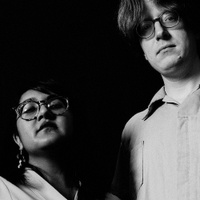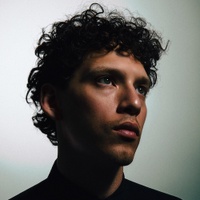On developing a process that works for you
Prelude
Dalton Conley is a prolific writer, sociology professor, and New York original. His first memoir Honky reads like fiction while putting his 1970s childhood in the Lower East Side tenements into the context of wider laws of race and class. A few books later in Parentology, he shares the evidence-based experiments he applied to his children. Right now he is teaching at Princeton University, studying at Brooklyn College, writing a new memoir, and updating his sociology textbook, You May Ask Yourself… An Introduction to Thinking Like A Sociologist.
Conversation
On developing a process that works for you
Sociologist Dalton Conley discusses finding balance, learning from failure, and writing memoirs that tell the story of your time.
As told to Paul Barman, 1822 words.
Tags: Writing, Sociology, Education, Process, Beginnings.
Is there a story behind writing your 2001 book Honky?
In my 20s, I had written, mostly as a form of therapy, a novel about a guy who is from the Lower East Side, he’s in California, he falls in love with a woman, he goes through a breakup. It was supposed to be a bildungsroman, a coming of age story. And it was okay enough that it got me an agent, which is the first hurdle. She sent it out to all the publishers and it was rejected everywhere. And the ones that were nice enough to send a note back with some comments, there was a unifying theme and it was that the most interesting parts of this are not the romance or anything happening in California. They’re the flashbacks to the Lower East Side of this fish out of water story of this white kid, the narrator, who grew up in a Puerto Rican and African American neighborhood, a low income neighborhood. So I filed that in my head and then one day I was back in California for work.
I was stuck in the interminable traffic on the Bay Bridge and on Fresh Air was being interviewed a teacher who I was not lucky enough to have in high school, but who taught at my school, Frank McCourt, whose memoir was on the New York Times bestseller list for three years. He won the Pulitzer Prize.
And also a friend of mine from college at that time was about to sign a book deal for her own memoir [To See and See Again by Tara Bahrampour] about growing up in Iran and then coming to the United States. She left on the day the Shah left, as her family fled the approaching revolution. And I just had this light bulb go on over my head of, “Why am I trying to bang my head against the wall trying to get a literary novel published when there’s better opportunity for me to write a memoir?” And immediately the word “honky” came in my mind as that’s what it was about.
And I didn’t realize at the time, but going from fiction to memoir made the book more political. It made it more thematic about issues in the United States in particular about how you can understand the power of race and class through the exception that is me that proves the rule. And I immediately called my agent and she said, “Slow down, slow down. Do not go and write a whole book again. Write a proposal. There’s a lot of similarities between memoir and fiction.”
Evidently if it’s officially nonfiction, you can sell a proposal for a book rather than having to write the whole book itself. So I did that. I wrote a proposal, we sent it out again to all the publishers, and this time it was rejected by everybody except for two. And that was good enough for me. I went with the university press at first and then the mainstream publisher bought the rights for the paperback. That’s almost 25 years ago now and I’m actually working on a new afterward because the original publisher’s going to put it out again.
You’re helping my thought process because I have no idea right now what I’m actually going to write in the afterward. I have to get those juices flowing.
What makes it totally unique to my mind’s ear is the smoothness and frequency of zooming all the way out and back in again.
I call it a sociological memoir. I don’t think it would work if I was trying to explicitly hammer home a sociological message. And I don’t think it would work if it were just totally novelistic where there’s zero context given in the book. And so I try to balance that. Once I had that lens that I was going to tell a story about race and class in America and how it works, through not the obvious lenses or the obvious mechanisms what we think about, that you can be someone who’s solidly middle class and has white privilege even though your parents are on food stamps and you’re living in a neighborhood of projects because there’s all these much more subtle things going on.
Once I had that frame, the rest fell into place. Different chapters deal with different issues like crime and family life and so forth. And the other aspect of a memoir that is self-organizing is that usually it’s chronologically organized. So that takes a lot off of your shoulders. Compared to a novelist when you’re balancing it, “Should I be telling this in flashback? Should I jump forward?” So that was a very straightforward book. It starts from literally when I’m three years old and kidnap a girl who I want to be my baby sister and goes all the way through the cusp of high school. A developing child who’s learning about the world has its own narrative momentum. I’m actually trying to go back to memoir now. I mean, I’ve written other books as you know in between and they’re more sociological, straight nonfiction.
How do you balance confessional and professional?
I don’t know if I do a good job balancing it. I just know that I do that because even though my day job is as a social scientist and an academic, I’m really literally the child of artists and I still think of myself as that, even though I’m ensconced in the institutional structures of the ivory tower. So the more I can do that and sneak it into other venues like social science writing, which is where I have expertise to offer and where I have institutional platform to deliver, I enjoy that.
I’m not a journalist/reporter out there in the world. I’m much more an introvert observing things in my immediate household milieu. So that’s why I end up writing about that kind of stuff.
It’s funny because I don’t get introvert from your writing. It’s like a place where you’re an extrovert.
That’s where I express myself much more than in everyday life. I like trying to connect the personal to the bigger issues. So that’s what C. Wright Mills said in the 1950s was what sociology should do is make personal troubles into public problems. Not seeing yourself as a sui generis individual, but actually seeing yourself as part of broader strokes of history and social structures and forces.
I’m doing a new memoir. It’s not about race and class exactly, but it’s trying to locate the intimate personal details of everyday life within the broader scope of history that would be who we’ve experienced since the 1980s, the technological change, the big events like 9/11 and the pandemic and so forth. So that’s what I’m working on now.
Can you give me more insight as to your methods?
I can share a parable from my college writing teacher Leonard Michaels. He was a brilliant writer who didn’t get as much notoriety as he should have. He said the difference between a journalist and a writer is that, let’s say, we look out on the street and we see that a car accident has happened. A car has front ended one of these oak trees.
And the journalist will immediately get the basic “facts” down of the situation. How many passengers were there? Did they seem to have been drunk? Is anyone seriously injured or killed? What’s the make of the car? Is there foul play involved? All those who, what, when, where, why, how questions.
The novelist notices this particularly strange looking knot in the tree’s trunk and lingers over that and is obsessed with that. It starts there, ignoring the steaming, broken engine of the car or the blood on the windshield because something is drawing them to the knot on the tree. They may eventually get to the blood on the windshield or how many people were in the car and what caused the accident, but they start with somewhere else and they might linger on that tree knot for quite some time.
And I would say the sociologist does neither of those. They focus on the broader themes and it’s not really even a narrative. It’s like, “Well yes this is a tragic accident, but we know that traffic fatalities have actually been going down steadily for the last three decades, except for little blips since the pandemic maybe.
What is the demographic and social positions of the people who were in the car? How might that explain why this happened? Why did it happen in this neighborhood? Is this a neighborhood without adequate public infrastructure?”
So what I try to do, is bring all those three things together and start with the knot and the tree, but don’t ignore the other things and weave them all together. That’s what I’m trying to do.
So far, your memoirs cover childhood and parenthood. What is the inevitable third thing?
It’s about what have we gained and what have we lost in the incredible technological transformation we’ve had. A lot of the stuff I’m refashioning is work that I wrote in notebooks or in drafts back in real-time in 1988, in 1995, in 2001. I’m trying to anchor it with each sort of section being built around a big event in the world. There’s a whole section on when the Soviet Union fell, but that’s really in the background and it’s just giving a sense of what’s different about the world then and, of course, the experience of the characters without cell phones, without anything.
I want to really communicate what that was like over a single person’s life span to live in what are radically different social worlds from then until now. So there’s a whole period that is about conflict in my first marriage, that’s all around 9/11 and the invasion of Iraq. That’s another section of the book. So it actually spans quite a long timeframe, but we see how the characters change along with the sort of daily rhythm of life as cell phones emerge, as the security state emerges after 9/11, all those kind of things, but I’m trying to tell it through the details of intimate family life and relationships.
Is your new partner at all apprehensive about being in the-
Yes. She’s a much more private person. But I told her, “You knew what you were getting yourself into.” It’s not like I was an accountant and then I had a midlife crisis and decided to write a memoir.
- Name
- Dalton Conley
- Vocation
- writer and sociology professor
Some Things
Pagination



